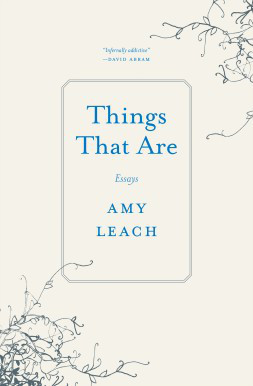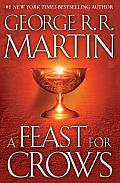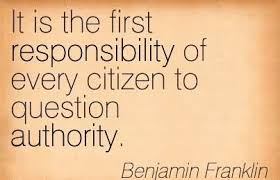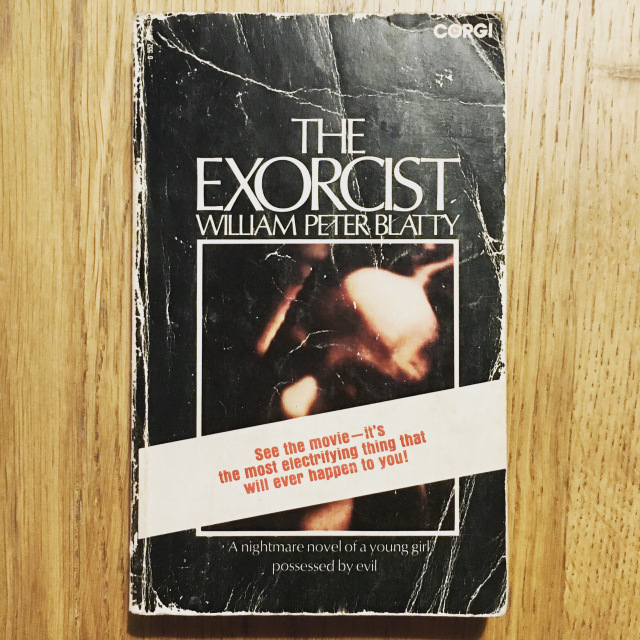This is a collection of essays, by Amy Leach, about the beauty of the natural world and how it intersects with our everyday lives. It allows the reader to look at the world around them with wonder once again. The essays look at everything from the sea cucumber, to fainting goats, to the shapes we see in the space between stars. These essays take the reader to places deep in the ocean, on the highest mountain top, deep into space, asking the reader to take nature’s perspective from events into account. To think about how the things that we do affect nature; from assigning names to the shapes we see in the sky, to yelling at a sea cucumber, and always reminding the reader that no matter what nature needs us as much, if not more than, we need it.
about the beauty of the natural world and how it intersects with our everyday lives. It allows the reader to look at the world around them with wonder once again. The essays look at everything from the sea cucumber, to fainting goats, to the shapes we see in the space between stars. These essays take the reader to places deep in the ocean, on the highest mountain top, deep into space, asking the reader to take nature’s perspective from events into account. To think about how the things that we do affect nature; from assigning names to the shapes we see in the sky, to yelling at a sea cucumber, and always reminding the reader that no matter what nature needs us as much, if not more than, we need it.
“Whether people need nature or not, it was clear that nature needed people. But perhaps nature needs us like a hostage needs her captors: nature needs us not to annihilate her, not to run her over, not to cover her with cement, not to chop her down. We can hardly admire ourselves, then, when we stop to accommodate nature’s needs: we are dubious heroes who create peril and then save it’s victims, we who rescue the animals and the trees from ourselves.”
I could quote every line of this book to tell you that the prose is beautiful and that reading these essays you feel as if every word was chosen specifically for that moment and that if it were even a slightly different word it wouldn’t have the same meaning flowed from the page to your mind as well, you wouldn’t feel the meaning in your heart. The two essays in this collection that I kept coming back to were: “Please Do Not Yell at the Sea Cucumber,” and “The Wild What.” It was tough to narrow these essays down to three, and I am certain that if I were to read this collection again, being in even a slightly different frame of mind from right now this would change. I would be drawn to other essays more, each essay in this collection has a drive and it is so easy to get lost in Leach’s language along the way.
“No the sea cucumber eats dirt and its drama is solitary and ultimate. Every year, for three weeks, it melts down its respiratory and circulatory systems and then rebuilds itself. The danger is that if it gets warm or stressed during this restoration period the poor frail cucumber will burst, expelling all its softened heartsoup. Please do not yell at the sea cucumbers” (86).
This essay takes the reader deep into the depths of the ocean to look at jellyfish, the boneless creatures that follow the whims of the currents, and the sea cucumber, an echinoderm that jumps across the sea floor and rebuilds itself every year. This essay is able to take the stress of living and anxieties about what to do and where to go, and show that every being on this planet undergoes these moments. It reminds the reader that taking the time to be fragile and rebuild is important. And even more importantly, to not yell at the sea cucumber.
“The bear in the sky is sometimes mistaken for a ladle or a prawn, or the government, while the bear on the ground rarely is” (149)
The Big Dipper, the Big Bear, the Starry Plough, The Great Wagon, Charles Wagon, Great Bear, the Seven Oxen, a coffin and mourners, whatever you see when you look at Ursa Major, this constellation has always held a place in our collective imagination. I know that my draw to this essay is perhaps mostly personal, as the Big Dipper has on more than one occasion convinced me that I can navigate by the stars, and always feels like home. And you, blog reader, aren’t going to be drawn in by memories of this constellation while waiting for the bus, or trying to find home by looking at the stars on overnight camping trips. This essay has something for everyone. Lessons about the stars and how our social structures have changed the way we look at them and reminds the reader that the stars have always been here doing their thing, and will continue to be around long after we are gone.
Amy Leach is able to do take the nonfiction essay somewhere that I don’t often see it go. So many “literary” essays focus on the personal, and so many essays about the larger world seem focused on the facts and less bout how they are being presented. These essays show that the larger world can be personal and beautiful and has a life similar to our own. The language is beautiful and creates images that stay with the reader long after closing the book.
Recommendation: If you are tired of reading essays that feel the same, that get too personal at times, these essays are for you. If you like essays that wind and twist and somehow still end up in the same place, these essays are for you. If you like essays about the wider world that don’t remind you how much still needs to be done, these essays are for you.
Advertisements Share this:





